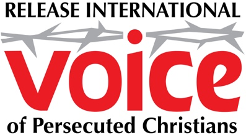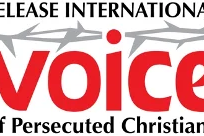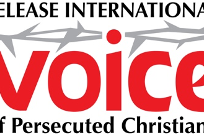Report shows Christian persecution growing in Afghanistan, India and Nigeria

Source: Release International
A leading US Commission is calling for Afghanistan India and Nigeria to be designated countries of particular concern because of the growing threat to religious freedom in those nations. The United States Commission on International Religious Freedom (USCIRF) has just published its 2022 Annual Report (Monday April 25). Its findings are in line with the recent Persecution Trends report published by UK-based Release International, which supports persecuted Christians around the world.
The bipartisan USCIRF, which advises the president of the United States and US State Department, is calling for 15 nations to be included on the US list of countries of particular concern because of rising persecution and religious intolerance.
The most notable additions are Nigeria, India and Afghanistan.
Other countries on the list as the world's worst violators of religious freedom are: China, Eritrea, Iran, North Korea, Pakistan, Russia, Burma, Saudi Arabia, Tajikistan and Turkmenistan, Syria and Vietnam.
"We welcome this report," says Paul Robinson, CEO of Release International. "Release International has long been reporting on the widespread violence against Christians in Nigeria, as well as India and Afghanistan. These other countries have also earned their places on the list.
"Last year, the US designated Russia a country of political concern. The USCIRF is confirming that decision. With all eyes on Russia's assault on Ukraine, we will be watching closely to see how Russia is treating Christians of faiths other than Russian Orthodox."
Afghanistan
The USCIRF has long criticised the Taliban for its extremist policies. Its 2022 Report warns:
'Afghans who do not adhere to the Taliban's harsh and strict interpretation of Sunni Islam and adherents of other faiths or beliefs are at risk of grave danger.'
The 2022 Annual Report states: 'With the Taliban's return to power, religious freedom conditions in Afghanistan, and the overall human rights situation, significantly deteriorated in 2021.
'Religious minorities faced harassment, detention, and even death due to their faith or beliefs.' It continues: 'Christian converts [and other minorities] practiced their faith in hiding due to fear of reprisal and threats from the Taliban.
'They are unable to express their faiths or beliefs openly because they face dire consequences, including death, if discovered.
'Afghans who converted to Christianity from Islam over the past 20 years are considered 'apostates', a crime punishable by death. Converts, who already faced ostracisation and the threat of honour killings by family and village members, are at heightened risk following the Taliban takeover.
'USCIRF received reports that the Taliban have gone door-to-door looking for Christian converts. Christians have received threatening phone calls, and one leader of a house church network received a threatening letter in August from Taliban militants. Some Christians have turned off their phones and moved to undisclosed locations.'
The report adds: 'The crisis in Afghanistan should serve as a collective call to action to ensure the protection of the most vulnerable religious communities around the globe.'
"Afghanistan has long been a country of concern to Release International, but the threat of persecution towards Christians and others has increased substantially since the Taliban takeover," says Release International CEO Paul Robinson.
"The situations in Afghanistan, the Sahel and now the Ukraine, should indeed be a wake-up call to the world - and particularly to the church."
India
According to the latest USCIRF report, religious persecution in India has taken a significant turn for the worse. The USCIRF noted that the BJP government's Hindu nationalist agenda was impacting Christians and Dalits - growing numbers of whom have converted to Christianity - as well as other religious minorities.
The report pointed to the increasing numbers of states that are passing anti-conversion laws. And warned that these are encouraging a culture of impunity and violence towards Christians and others.
The USCIRF observed: 'The government continued to systemise its ideological vision of a Hindu state at both the national and state levels. Government action, including the continued enforcement of anti-conversion laws against non-Hindus, has created a culture of impunity for nationwide campaigns of threats and violence by mobs and vigilante groups.'
The report noted around one-third of India's 28 states now limit or prohibit religious conversion.
The USCIRF warned: 'National, state, and local governments demonised and attacked the conversion of Hindus to Christianity.'
Examples of government persecution included a 2021 state order in Karnataka to carry out a 'survey of churches and priests in the state which authorised police to conduct a door-to-door inspection to find Hindus who have converted to Christianity. And in Uttar Pradesh, one of the worst offending states for religious persecution, the USCIRF 'received documented reports of at least 50 incidents between June and October 2021 targeting the Christian community'.
Across India the growing culture of religious intolerance had led to 'numerous attacks… on religious minorities, particularly Muslims and Christians, and their neighbourhoods, businesses, homes, and houses of worship.
'Many of these incidents were violent, unprovoked, and/or encouraged or incited by government officials,' the USCIRF noted.
Another example of state collusion with persecution was that of Father Stan Swamy, described as 'an 84-year-old Jesuit priest and long-time human rights defender of Adivasis, Dalits, and other marginalised communities.
'He was arrested on dubious charges in October 2020 and never tried. He died in custody in July 2021 despite repeated concerns raised about his health.'
Nigeria
Nigeria has long been a country of concern to UK-based Release International, which, with others, has documented growing numbers of attacks against Christian-majority villages in the north and central states by Islamist militants and bandits.
"Christian villagers are being targeted and driven from their homes, creating a widespread exodus and growing number of displaced," says Release International CEO Paul Robinson.
"There is an anti-Christian dimension to much of this violence, which is stirring up an increasing lawlessness that the government of Nigeria is failing to control."
The USCIRF report criticises the state, along with Islamist militant groups, for widespread violations of religious freedom. It warns:
"Despite Nigeria's constitution protecting religious freedom… citizens faced blasphemy charges and convictions, violence, and attacks during religious ceremonies."
Among the many attacks against Christians during the reporting period in 2021, the USCIRF noted:
-In May, armed actors burned down a church during an attack in Kaduna State that killed eight people.
-In July, armed actors reportedly burned four churches in attacks against communities in Kaduna.
-In September, a violent mob in Kano State attacked and killed a local reverend in retaliation for his alleged involvement in converting a member of a Muslim family to Christianity.
-In October, two worshippers were killed in Kaduna State in an attack on a church during morning prayers.
-In November, churches in Zamfara State received threatening messages from local armed actors demanding that they close or risk ferocious attacks.
The USCIRF continues: 'Across the country, at least 13 religious leaders were kidnapped for ransom in 2021. While most abducted religious leaders have been released, some have died during these abductions, including a pastor in Akoko Ondo, a priest and an imam in Katsina, and an imam in Ogun. Kidnappers also targeted two religious schools, abducting hundreds of schoolchildren.'
The USCIRF's influential report also criticises the government of Nigeria and the US.
It condemns the Nigerian government for failing to respond sufficiently to violence against religious leaders and congregations.
And it criticises the US government for removing Nigeria from its list of countries of particular concern, despite the ongoing and increasing persecution.
"Release International supports this call for the United States and others to list Nigeria as a country of particular concern," says CEO Paul Robinson. "The religious persecution continues to escalate, whether from the hands of Islamists, bandits or indifferent - or even worse, colluding politicians. Nigeria - and the world - can no longer overlook and ignore the growing violence against Christians."
UK-based Release International is active in around 30 countries. It works through partners to prayerfully, pastorally, and practically support the families of Christian martyrs, prisoners of faith and their families, as well as Christians suffering oppression and violence, and Christians forced to flee.


















